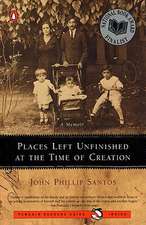Regional Cultures and Mortality in America
Autor Stephen J. Kunitzen Limba Engleză Hardback – 14 dec 2014
Preț: 460.10 lei
Nou
Puncte Express: 690
Preț estimativ în valută:
88.04€ • 92.17$ • 72.85£
88.04€ • 92.17$ • 72.85£
Carte tipărită la comandă
Livrare economică 05-19 aprilie
Preluare comenzi: 021 569.72.76
Specificații
ISBN-13: 9781107079632
ISBN-10: 1107079632
Pagini: 265
Ilustrații: 73 b/w illus. 1 map 50 tables
Dimensiuni: 160 x 240 x 20 mm
Greutate: 0.52 kg
Editura: Cambridge University Press
Colecția Cambridge University Press
Locul publicării:New York, United States
ISBN-10: 1107079632
Pagini: 265
Ilustrații: 73 b/w illus. 1 map 50 tables
Dimensiuni: 160 x 240 x 20 mm
Greutate: 0.52 kg
Editura: Cambridge University Press
Colecția Cambridge University Press
Locul publicării:New York, United States
Cuprins
Part I. The National Perspective: 1. Institutions, income, and mortality in the United States; 2. Institutions and the mortality of African Americans, Hispanics, and American Indians; 3. Regional patterns of urban African American mortality; Part II. Local Studies: 4. Extremes of mortality in the poorest states; 5. Regional differences in American Indian mortality; 6. Hispanic mortality in New Mexico; 7. Conclusion.
Recenzii
'This is a masterly and important study from one of the leading and most historically knowledgeable analysts of diverse health trends. The deep knowledge that Dr Kunitz draws from his highly productive career enables him to combine a coherent synoptic vision with illuminating case studies that explore the distinct health fortunes of indigenous and Hispanic populations. This is history that policy makers urgently need to know and to reflect on.' Simon Szreter, St John's College, Cambridge
'Understanding what determines differences in health between populations is a central preoccupation of public health. Stephen Kunitz tackles the heterogeneity of mortality experience across individual states in the United States. In a scholarly and thought-provoking manner, he draws on a broad literature to argue that historically informed differences in state culture, running back centuries, influence health via the manner in which communities mobilize state and private institutions to advance the public good. This book is an important contribution to the study of determinants of population health, challenging as it does simplistic one-dimensional explanations. Its scope and intelligence will engage anyone interested in these big and difficult questions.' David Leon, London School of Hygiene and Tropical Medicine
'Stephen Kunitz has given us an inspiring book of extraordinary importance. He engages historical perspectives, regional cultures, national institutions and social traumas in the study of mortality. His approach might be of interest to scientists in many fields, and to humanists in many disciplines, as an example of how we might learn from one another.' David Hackett Fischer, Earl Warren Professor of History, Brandeis University, Massachusetts
'… provides a much-needed explanation for a long-standing and well-documented problem: regional and social inequality in mortality in the United States … Kunitz's investigation into the social determinants of health and mortality in the United States takes a broad structural perspective that is refreshing to readers of the population health literature.' Andrew Fenelon, Population and Development Review
'Regional Cultures and Mortality in America presents a novel approach that may challenge the traditional way policymakers, public health practitioners, and many other disciplines develop one-size-fits-all programs designed to change risk behavior at the individual level. Kunitz makes a thorough and compelling argument that we must take a broader look at a state's culture, policies and institutions, while mindful of differences in mortality among subpopulations.' Jillian Jacobellis, New Mexico Historical Review
'Stephen Kunitz has presented a thought-provoking book that engages history, public health, and economics … Scholars will certainly continue to think about the ways in which regional variation informs how people die, and therefore with an eye for helping people live.' Richard M. Mizelle, Jr, Bulletin of the History of Medicine
'Understanding what determines differences in health between populations is a central preoccupation of public health. Stephen Kunitz tackles the heterogeneity of mortality experience across individual states in the United States. In a scholarly and thought-provoking manner, he draws on a broad literature to argue that historically informed differences in state culture, running back centuries, influence health via the manner in which communities mobilize state and private institutions to advance the public good. This book is an important contribution to the study of determinants of population health, challenging as it does simplistic one-dimensional explanations. Its scope and intelligence will engage anyone interested in these big and difficult questions.' David Leon, London School of Hygiene and Tropical Medicine
'Stephen Kunitz has given us an inspiring book of extraordinary importance. He engages historical perspectives, regional cultures, national institutions and social traumas in the study of mortality. His approach might be of interest to scientists in many fields, and to humanists in many disciplines, as an example of how we might learn from one another.' David Hackett Fischer, Earl Warren Professor of History, Brandeis University, Massachusetts
'… provides a much-needed explanation for a long-standing and well-documented problem: regional and social inequality in mortality in the United States … Kunitz's investigation into the social determinants of health and mortality in the United States takes a broad structural perspective that is refreshing to readers of the population health literature.' Andrew Fenelon, Population and Development Review
'Regional Cultures and Mortality in America presents a novel approach that may challenge the traditional way policymakers, public health practitioners, and many other disciplines develop one-size-fits-all programs designed to change risk behavior at the individual level. Kunitz makes a thorough and compelling argument that we must take a broader look at a state's culture, policies and institutions, while mindful of differences in mortality among subpopulations.' Jillian Jacobellis, New Mexico Historical Review
'Stephen Kunitz has presented a thought-provoking book that engages history, public health, and economics … Scholars will certainly continue to think about the ways in which regional variation informs how people die, and therefore with an eye for helping people live.' Richard M. Mizelle, Jr, Bulletin of the History of Medicine
Notă biografică
Descriere
Examines how state government policies and their historic beginnings have present-day effects on their residents' political lives and on population health, especially for marginalized groups.
















